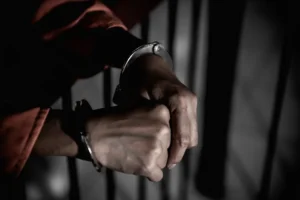Trusted Ohio Third Offense OVI Attorneys
Upon conviction of a third OVI within six years, you can expect serious consequences that will likely deeply affect your life, such as significant time behind bars, expensive fines and penalties, and a permanent DUI criminal record. Your life and work are likely to be affected, as well as your ability to get around freely in your vehicle.
The seriousness of these consequences makes it essential for those charged with OVI to have an experienced third DUI lawyer in Dayton representing them against the state. A third drunk driving offense lawyer from our team of attorneys can provide you with a robust defense against the state and preserve your rights and privileges for the future.
To learn how Gounaris Abboud can potentially help you avoid third DUI consequences, contact us for a free consultation and case review today.

Understanding Third Offense OVI in Ohio
OVI (operating a vehicle impaired), found in ORC 4511.19, is the technical term for DUI in Ohio.
It essentially classifies drinking and driving as a misdemeanor and sets a threshold of .08% as the legal limit for a person’s blood alcohol content (BAC). The term also applies to driving under the influence of drugs.
A third offense for an OVI is treated much more harshly than a first or second offense. Those convicted of OVI three times can expect jail time and fines as well as collateral consequences. A third offense occurs if you are convicted of the charge within six years of the first two convictions.
What Are the Penalties for a 3rd DUI in Ohio?
DUI penalties are harsh in Ohio. But when it’s a person’s third OVI offense, they can expect to face even harsher penalties and consequences.
| Penalty Criteria | BAC .08% – .17% | BAC .17% or higher | Refused a Test |
|---|---|---|---|
| Degree of Charge | First-degree misdemeanor | First-degree misdemeanor | First-degree misdemeanor |
| Jail Time | Minimum 30 days, Maximum 1 year or 15 days + 55 days to 1 year of electronically monitored house arrest. | Minimum 60 days, Maximum 1 year or 15 days + 55 days to 1 year of electronically monitored house arrest. | Minimum 60 days, Maximum 1 year or 15 days + 55 days to 1 year of electronically monitored house arrest. |
| Fine | Minimum $850, Maximum $2,750. | Minimum $850, Maximum $2,750. | Minimum $850, Maximum $2,750. |
| Treatment Program | Mandatory (Self-funded). | Mandatory (Self-funded). | Mandatory (Self-funded). |
| Driver’s License Suspension | Minimum 2 years, Maximum 10 years. | Minimum 2 years, Maximum 10 years. | Minimum 2 years, Maximum 10 years. |
| Driving Privileges | No driving for 180 days from the date of charge. | No driving for 180 days from the date of charge. | No driving for 180 days from the date of charge. |
| License Plate Requirement | Restricted yellow | Restricted yellow | Restricted yellow |
| Ignition Interlock Device | Mandatory installation | Mandatory installation | Mandatory installation |
| Probation Period | Up to 5 years | Up to 5 years | Up to 5 years |
| Vehicle Penalty | Immobilization for at least 90 days or forfeiture. | Immobilization for at least 90 days or forfeiture. | Immobilization for at least 90 days or forfeiture. |
* This table is provided for informational purposes only and may not encompass all possible legal outcomes or penalties. It is always recommended to consult with a legal professional to understand individual rights and potential consequences.
Third DUI with a Low BAC
When it comes time to sentence an OVI offender, the law makes a distinction between defendants based on their blood alcohol concentrations. Generally speaking, the lower your BAC as a third DUI offender, the milder your sentence and penalties are likely to be.
If you have been convicted of a third DUI within six years of your first two, and your BAC was between .08% and .17%, you can expect to be charged with a first-degree misdemeanor. This charge carries with it at least 30 days in jail or 15 days behind bars and at least 55 days of electronic monitoring.
Third DUI with a High BAC
If you have been convicted of a third OVI and you had a BAC that is over .17%, your charge will still be a first-degree misdemeanor. However, you will face a tougher sentence minimum of 60 days in jail or 15 days in jail and at least 55 days of house arrest. Additionally, expect to pay more in fines. Third-time offenders with a high BAC face at least $850 in fines and can potentially be held to pay up to $2,750.
Third DUI & Refused a Test
In Ohio, all drivers are presumed to have given implied consent to a chemical test by driving on Ohio roadways. Hence, when a law enforcement officer insists on a chemical test, there are penalties for refusing to submit to one.
If you have been convicted of OVI for a third time and you refused a chemical test from a law enforcement officer, you face at least 60 days behind bars with a maximum of one year or 15 days in jail and a minimum of 55 days of house arrest with an electronic monitor.
Collateral Consequences of Third DUI in Ohio
Criminal penalties are not the only consequences of a third DUI in Ohio. Defendants must also face serious collateral consequences that can make leading a normal life difficult.
Immobilizing Your Vehicle
After a third offense for an OVI within six years, you will be forced to immobilize your vehicle and relocate it for a minimum of 90 days. This involves having a tow company tow your vehicle to a location where a police officer will attach a boot or a club so it cannot be moved. To get your vehicle released, you must obtain an entry signed by a judge.
Administrative License Suspension (ALS)
An administrative license suspension is a civil penalty that suspends a driver’s driving privileges. If you are pulled over by a law enforcement officer and refuse to take a chemical test, the law enforcement officer is permitted to seize your driver’s license right there, known as an administrative license suspension.
The length of the suspension depends on various circumstances, such as your prior criminal record. With a third conviction of OVI, an administrative suspension will have a duration of three years. Additionally, if you have refused a chemical test in the past twice and refuse one for a third time, your license suspension will last three years.
Fortunately, your DUI lawyer can fight to get your license back by filing an administrative license suspension appeal at your first court appearance. If your license remains suspended, you can file a petition with the court seeking limited driving privileges for work, medical, and other such reasons.










